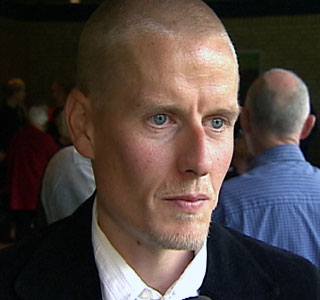A Quote by Bentley Little
Horror writers can write about everything in the real world that a mainstream novelist can--plus the supernatural, which is the most fertile field for metaphor imaginable.
Related Quotes
..the real world's all we've got. Believers in the supernatural claim to have special wisdom about the world. But real wisdom means knowing truth from falsehood, knowing the difference between evidence and wishful thinking. Yes, the real world is mysterious and sometimes frightening. But would the supernatural make it better? The real world has beauty, poetry, love and the joy of honest discovery. Isn't that enough?
The truth is that we don't know much about the spiritual world except for what Scripture tells us, so it's unwise to think we can speak with clarity about what a divine being can or cannot do. The tools of analyzing the natural world are of no use for analyzing the supernatural world. For the latter we need rules of logic, and the supernatural beliefs of the biblical writers are quite defensible in that arena.
The problem of the novelist who wishes to write about a man's encounter with God is how he shall make the experience--which is both natural and supernatural--understandable, and credible, to his reader. In any age this would be a problem, but in our own, it is a well- nigh insurmountable one. Today's audience is one in which religious feeling has become, if not atrophied, at least vaporous and sentimental.
When I read Matt Ruff's book, that was my first encounter with learning about sundown towns, and I was like 'What?' Like, you can't make this up. If I wrote this horror movie talking about sundown towns where you can't be black after dark in America, people be like, 'OK, we get the metaphor,' and it's like, no, that's real. It's not a metaphor.
To me, the newspaper business was a way to learn about life and how things worked in the real world and how people spoke. You learn all the skills - you learn to listen, you learn to take notes - everything you use later as a novelist was valuable training in the newspaper world. But I always wanted to write novels.
People say 'Scott's [Derrickson] movies are kind of scary, is this a horror movie?' Of course, [Doctor Strange] it's not a horror movie. But what Scott has done so well in the best of his films is have one foot completely in the real world and one foot in this whatever supernatural sub-genre he was playing with.
The metaphor is perhaps one of man's most fruitful potentialities. Its efficacy verges on magic, and it seems a tool for creation which God forgot inside one of His creatures when He made him. All our faculties keep us within the realm of the real, of what is already there. The most we can do is to combine things or break them up. The metaphor alone furnishes an escape; between the real things, it lets emerge imaginary reefs, a crop of floating islands.
How much of what the biblical writers believed about the supernatural world do I believe? They weren't us. We are products of the Enlightenment; they were not. So let's stop denying that reality. Rather than sitting in judgment on them from our Enlightenment perches, we ought to have them sit in judgment on us when it comes to informing us about the supernatural world. After all, what they wrote was ultimately overseen by God.
I could never write about the sort of people John Cheever or John Updike or even Margaret Atwood write about. I don't mean I couldn't write as well as they do, which of course I couldn't; they're great writers, and I'm no writer at all. But I couldn't even write badly about normal, neurotic people. I don't know that world from the inside. That's just not my orientation.
The future is unwritten. there are best case scenarios. There are worst-case scenarios. both of them are great fun to write about if you' re a science fiction novelist, but neither of them ever happens in the real world. What happens in the real world is always a sideways-case scenario. World-changing marvels to us, are only wallpaper to our children.

































